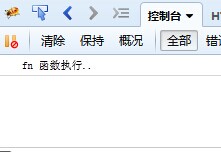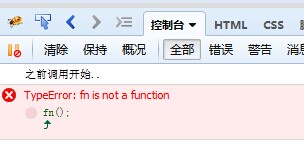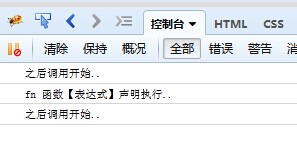
Reason for writing:
Usually when writing functions in js, we usually declare a function in the conventional way of function fn () {}. When reading some excellent plug-ins, we inevitably see var fn = function () {}. What are the differences between the creation of these functions? Today, in the spirit of breaking the casserole and asking the question, let’s talk about this fascinating function declaration.
Function declaration
Function declaration sample code
In this way, we have declared a function named fn. Here is a thought. Do you think it will be executed if you call it on top of this function? Or will an error be reported?
fn(); // Call the fn function we declared before
Console output:

Yes, the fn function can be called at this time. Here is a summary of the reasons.
Summary:
1: At this time, the fn function is the result of the variable, which is stored in the variable of the global context by default (can be verified by window.function name)
2: This method is function declaration, which is created when entering the global context stage. They are already available during the code execution stage. ps: javaScript will initialize the context environment (from global → local) every time it enters a method
3: It can affect variable objects (only variables stored in the context)
Function expression
Function expression example code
So we declare an anonymous function and point its reference to the variable fn?
Call the function declared by the expression once again above and below to see the output on the console.
Console print result:

You can see that when the code is executed and the fn() function is called for the first time, it prompts: fn is not a function (fn is not a method), and the operation is terminated when an error is encountered.
This shows that when fn() is called for the first time, the var fn variable does not exist as an attribute of the global object, and the anonymous function context referenced by fn has not been initialized, so the previous call failed.
Console print result:

It can be seen that it is possible to call after the expression function. Let’s summarize why?
Summary:
1: First of all, the variable itself does not exist as a function, but a reference to an anonymous function (value types are not references)
2: During the code execution phase, when the global context is initialized, it does not exist as a global attribute, so it will not cause pollution of variable objects
3: This type of declaration is generally common in plug-in development, and can also be used as a call to a callback function in a closure
So function fn () {} is not equal to var fn = function () {}, they are essentially different.




